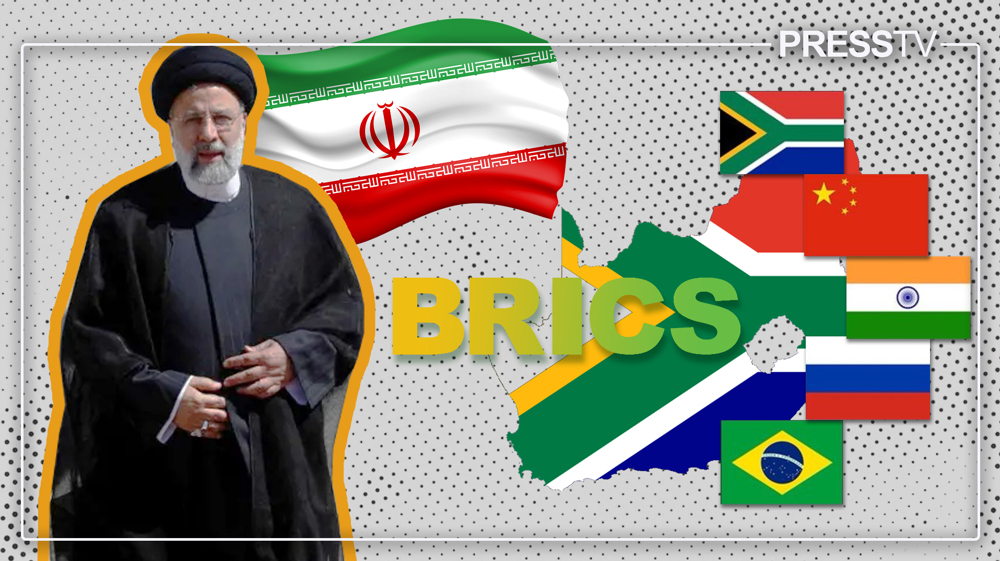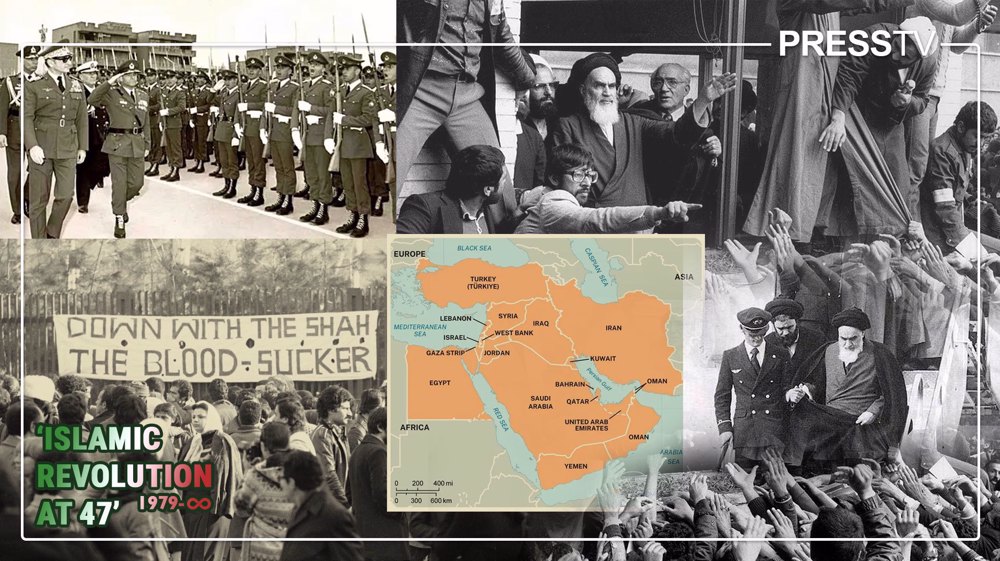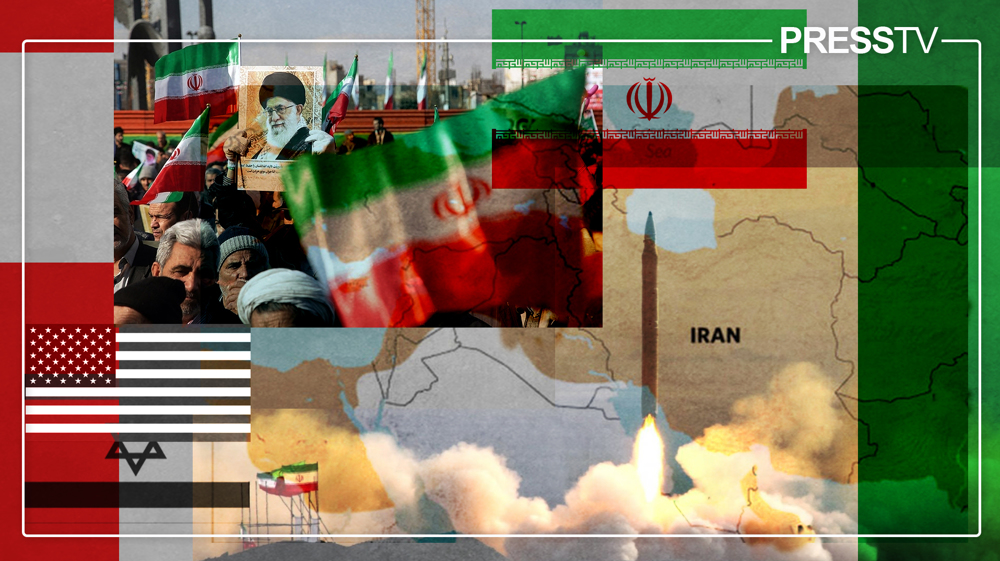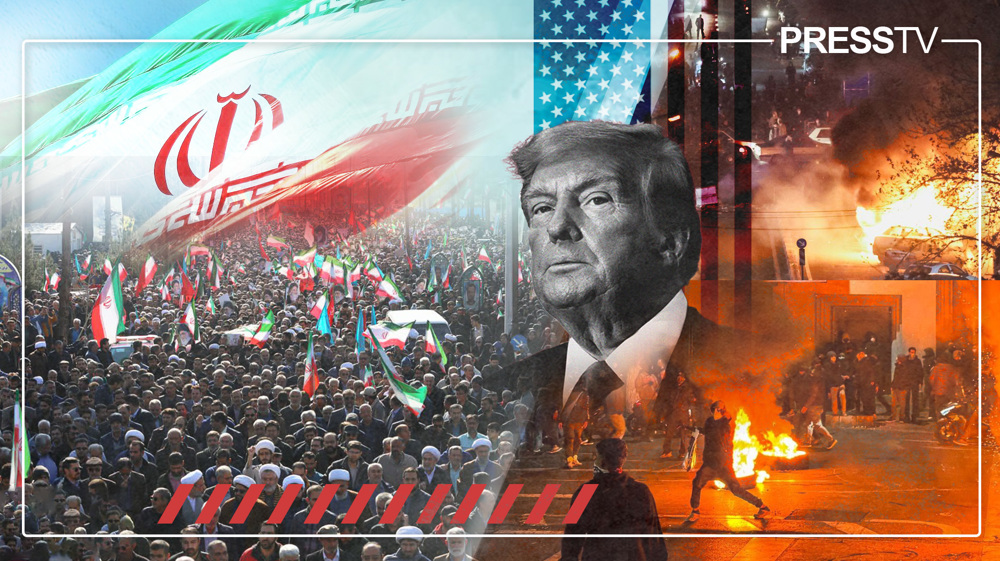Iran’s induction into BRICS proves failure of West’s isolation strategy
By Shabbir Rizvi
On Thursday, August 24, the BRICS alliance (Brazil, Russia, India, China, South Africa) announced that it would be expanding to invite the Islamic Republic of Iran - as well as five other countries (Egypt, Ethiopia, Saudi Arabia, the United Arab Emirates, and Argentina) in a historic move.
The powerful economic alliance that accounts for a large chunk of global GDP is seeking to embrace new strategic members that would help represent the economic initiatives of “the global majority.”
The Islamic Republic of Iran’s entry into the BRICS alliance presents the most interesting case, with strong implications for the region and the world.
Since the Islamic Revolution of 1979, Iran has been reeling under crippling sanctions, foreign meddling, acts of war and aggression, sabotage, piracy, and espionage by Western regimes, particularly the United States, Britain, and the Zionist regime.
Despite this, the Islamic Republic of Iran has stood tall and navigated through tumultuous waters.
Iran has been at the receiving end of the cruelest form of US sanctions under the so-called “maximum pressure” campaign launched during the previous US administration - that pulled no punches even in the era of the COVID-19 pandemic.
Even then, Iran refused to bow to the West, which weaponized the pandemic against the Iranian nation, developing its own COVID-19 vaccines while advancing its medical technologies in the process. It has always carved its path forward - whether sanctions were involved or not.
It is this very commitment to strategic independence and neutralizing Western sanctions that paid off, particularly in 2023, with the country joining the Shanghai Cooperation Organization (SCO) and BRICS - two economic powerhouses with enough power to reshape the order of the global economy.
Geographically, Iran’s entry will help facilitate not only trade but development projects along the International North–South Transport Corridor.
Already a route that helps dodge Western sanctions (providing an alternative to the Suez Canal, for example), three out of four countries involved are now BRICS members: Iran, Russia, and India.
China could also play a larger role here by strengthening already existing roads and railways via its Belt-and-Road Initiative.
The corridor, which played a pivotal role in nullifying sanctions, will likely become even more sophisticated, much to the dismay of Western countries or their subservient puppets.
The strengthening of the corridor will make Iran an attractive partner to have formal diplomacy and economic ties with, especially for countries wanting to use the corridor for their trade facilitation.
There is also, of course, the Persian Gulf and its surrounding area. Earlier this week, within the Strait of Hormuz, a US military vessel attempted to disperse helicopters in Iran’s territorial waters.
The Islamic Revolutionary Guard Corps forced the helicopters down and made the vessel leave its waters. This came as US ships have been committing acts of piracy on ships carrying Iranian oil.
Iran’s oil exports have always played a key role in its economy - but have also started to play a key role in its diplomacy with other countries.
Recall President Ebrahim Raeisi’s successful visit to Venezuela, Cuba, and Nicaragua earlier this year - all signing various MoUs and deals around Iran’s oil exports to their countries.
The three Latin American countries have one thing in common with Iran - they are all heavily sanctioned and aggressively targeted by the United States.
Iran’s oil shipments to these countries would help them subvert US blockades and sanctions, but the looming threat of US piracy along the Persian Gulf and elsewhere still exists - threatening the delivery of these key resources.
Iran’s entry into BRICS - along with Saudi Arabia and the UAE, if they accept - will likely discourage this behavior. If the message of BRICS expansion is unifying economies and populations, then Saudi Arabia and the UAE would be discouraged from allowing the US - for example - to use their side of the Persian Gulf to disrupt Iran’s economic initiatives.
In this case, Iran’s trade facilitation and growth is a win for its neighbors - also now BRICS countries - and vice versa.
BRICS initiatives will seek to further develop trade routes within the Persian Gulf - reinforcing existing ports and likely creating new ones to bolster Iran and Saudi Arabia’s newfound diplomatic relations.
This would allow for easier facilitation to Iran’s allies in Latin America, dealing another heavy blow to the dollar terrorism of the US and its allies.
Allowing the US to continue its piracy against Iran via the territorial waters of Saudi Arabia and the UAE would no longer be tolerated. It's becoming very apparent why China was focused on meditating ties between Iran and Saudi Arabia earlier this year - a stable region would facilitate trade within the BRICS alliance while also rendering the US forces imposing Washington’s will useless.
Further unifying the region is the fact that Iran, Saudi Arabia, and the UAE are undisputed oil giants - and part of OPEC. The BRICS economy will create more friendly conditions for production and distribution - and Iran will now play a key role than ever with an SCO and BRICS member status.
With more countries moving towards paying in alternatives to the dollar - such as the yuan or ruble - this can spell out the end of the petrodollar.
But it wouldn’t stop there. At the summit, Russian President Vladimir Putin noted that “de-dollarization is a process that cannot be reversed.”
One of the main priorities of the BRICS nations is to create an alternative, unified currency to the dollar.
The dollar has been used not only as a global standard for exchange for decades but also as a weapon - Western sanctions have hurt economies by cutting off countries from the dollar, cutting off countries from buying everything from lifesaving medicine to parts for machinery.
The Islamic Republic of Iran is not only a vocal supporter of de-dollarization - but through practice, a committed one. The country has withstood the test of time and dodged sanctions, localizing its production of goods while finding key pathways outside of the control of Western regimes to trade.
It is precisely that which makes the Islamic Republic a powerful member in the quest for de-dollarization - Iran knows exactly what it would take to truly have an independent currency and use it against the US dollar.
The Islamic Republic of Iran’s integration into an economic alliance with the world’s most powerful leaders is proof of the failure of the West’s isolation strategy and the success of commitment to independence and the goals of the Islamic Revolution.
Where the US and its allies sought isolation for Iran, Iran has emerged powerful and integrated into a growing world economy on its terms - an absolute defeat of the West’s financial mechanisms.
The tables have now also been flipped. The terrorism of the dollar which has shaped global norms in favor of the West is now being met with a unified effort to destroy the dominance of the dollar.
Iran’s leading role in this initiative will help create a more fair and equitable world order - an order based on trust and mutual benefit- rather than the order of the imperialist West’s predatory debt traps and bullying via sanctions.
As US Treasury Secretary Janet Yellen predicted earlier this year - sanctions can backfire and ultimately hurt dollar hegemony.
BRICS expanding to include emerging economies like Iran’s - which have subverted the dollar and carved out its independent path- are now bringing about the very destruction of the dollar.
If the invited countries all formally accept - which is looking very likely - the process of de-dollarization would accelerate. As Putin stated, it would not be reversed. Its implications would unite global economies via cooperation instead of isolating them through dollar terrorism.
The Islamic Republic of Iran’s opponents may want to schedule a reality check sometime soon.
Through sanctions that killed children, narratives that drove Islamophobia and racism, and acts of terror that killed scores of innocent people, the Islamic Republic of Iran maintained its dignity and independence, refusing to capitulate - and for all of that - it now has a seat at the table with the leaders of the emerging new world.
Shabbir Rizvi is a Chicago-based political analyst with a focus on US internal security and foreign policy.
(The views expressed in this article do not necessarily reflect those of Press TV)
Iran puts ‘Jam‑e Jam 1’ into orbit in milestone for national broadcasting
‘Colonial eradication of Palestine’: Iran condemns Israel’s West Bank annexation push
Thousands block Melbourne as Israeli president ends contentious Australia visit
Nearly 800 Lufthansa flights cancelled as pilots, cabin crew strike
Pezeshkian: US, Israel exploit Iran’s challenges without genuine concern
VIDEO | Press TV's news headlines
VIDEO | Chaos by design
Leader hails Iranians for disappointing enemies with multimillion rallies










 This makes it easy to access the Press TV website
This makes it easy to access the Press TV website